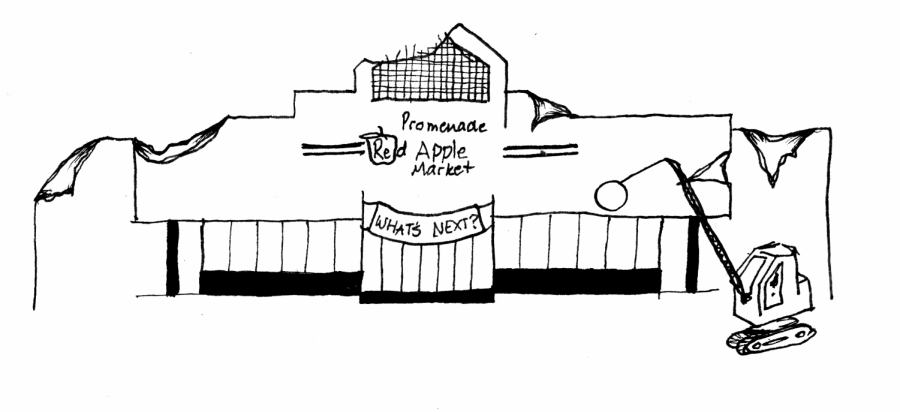Goodbye Red Apple
For those who grew up in the Central District, it’s easy to recognize a huge staple like the Red Apple on 23rd and Jackson, but it’s extremely hard to let go. It’s been a little over a year since the Red Apple rumor began to swirl around and unfortunately that rumor has now become a reality.
Now that Red Apple has officially closed, citizens in the neighborhood are left in awe and curious to see the new project. “I didn’t find out until a few months ago that Red Apple was closing” said local shopper Vonzella J
who’s been shopping at Red Apple for most of her life. Although the statement that the store was closing was a huge shock to locals, the part that has many of us scratching our heads is “What’s next to come?”
“I don’t know exactly what they’re going to put there now, but I know it won’t be a store like Red Apple” said Mrs. J.. Long time resident of the Central District Corey S, said the following: “It’s so sad to know that the store is closed, it’s been doing so well for so long”.
Many residents relied on Red Apple for their daily grocery needs and the removal of the grocery store will be difficult for locals to transport themselves to other neighborhoods. Without the store, the Central District is becoming more and more of a ‘Food Desert’. According to USDA, the term ‘food desert’ is defined as areas where food quality is low because of lack of nearby markets or competing chain grocery stores. “I have a car and I have other options, but not everyone has that other option so I hope that whatever they decide to put up, an affordable store will be involved.” said Corey S. who lived only five minutes away from Red Apple
The aspect of affordability is essential to residents of the Central District and these worries will become more prominent once Vulcan’s plans are in place. “We have been soliciting input from our neighbors on their grocery needs throughout our project outreach,” said Vulcan Inc. Investment Strategy Director, Lori Curran. “Vulcan is partnering both with Walgreens for everyday essentials and with Clean Greens to provide locally grown fresh organic produce at reasonable prices”
Another huge issue concerning locals is gentrification. Gentrification is defined as the process of renovating and improving a house or district so that it conforms to middle-class standards. However not everyone who resides in the Central District meets those middle class standards, and the community is concerned that inserting a Euro-centric, overpriced building that robs local businesses from what they’ve already built, and will fail to represent the people and their needs, would be a lost cause.
The Central District — and especially the promenade area, (where Red Apple is located) has multiple small shops and businesses owned by women, immigrants and African-Americans. Curran hopes to have the building resemble this. “We want to respect African American neighborhood history – consulted with renowned African American architects, and our design includes elements that reflect traditional African designs and patterns” said Curran.
Furthermore, Vulcan also supports local jobs. “We are targeting fifteen percent of our construction contract value to be awarded to minority and women-owned businesses,” said Curran, who also recognizes that not everyone fits the expensive middle class mold. To ensure that both housing and groceries are accessible to everyone, Vulcan plans to have affordable retail and housing. “Twenty percent of the units will be affordable to households at sixty-five to eighty-five percent area median income” said Curran.
Vulcan has had projects in Portland, Oregon, such as the well known building of Rose Garden/Moda Center and also in our own city of Seattle, where they helped redesign our beloved Century Link Stadium. People feel that the new building will lack the same history and sentimental value as Red Apple, but Vulcan Inc. says that they intend to amplify what we already have, and that is diversity.





